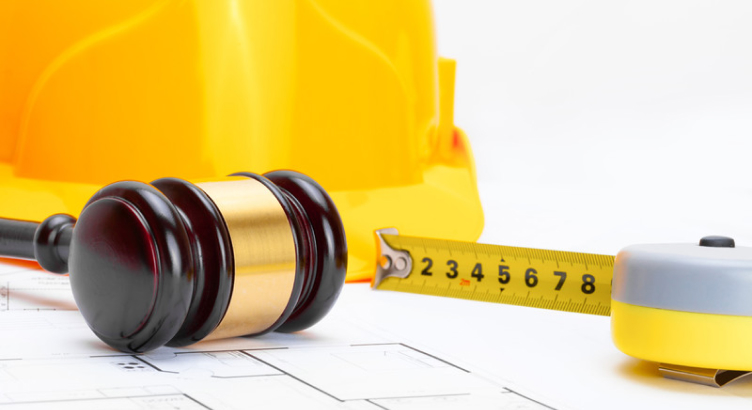Role of Legal Representatives in NCAT Disputes
When parties become involved in a NCAT home building dispute, they may choose to engage a legal representative to assist them in navigating the process. Legal representatives, such as construction lawyers, can provide valuable guidance and support throughout the proceedings.
One of the key roles of a legal representative is to advise their client on the relevant laws and regulations that apply to the dispute. They can also help the parties understand their rights and obligations under the contract, and provide guidance on the evidence required to support their case.
Legal representatives can assist their clients in preparing and submitting documents to NCAT, such as the application for the hearing and the statement of claim. They can also represent their client at the hearing and cross-examine witnesses on their behalf.
However, it’s important to note that legal representatives have limitations in their role in a NCAT dispute. They cannot guarantee a particular outcome or decision, and they cannot make decisions on behalf of their client. Their role is to provide legal advice and support to their clients to help them make informed decisions.
Overall, legal representatives play an important role in the NCAT home building dispute process. They can assist parties in understanding their rights and obligations, provide guidance on the evidence required, and represent their clients at the hearing.
Role of the Tribunal Member
In the NCAT home building dispute process, the Tribunal Member plays a vital role in overseeing the proceedings and ensuring that the dispute is resolved fairly and efficiently. Their primary responsibility is to make a decision based on the evidence presented by the parties and the relevant laws and guidelines.
During the dispute process, the Tribunal Member may ask questions, seek clarification on certain points, and guide parties through the process. They may also provide information about the legal and procedural aspects of the dispute.
The decision-making process is guided by the principles of natural justice, which require that the parties have a fair and impartial hearing and that decisions are made without bias or prejudgment. The Tribunal Member will carefully consider all evidence presented and make a decision based on the balance of probabilities.
It’s worth noting that the Tribunal Member is not an advocate for either party and does not provide legal advice. Their role is to remain impartial and ensure that the dispute process is fair and equitable for all parties involved.
Overall, the role of the Tribunal Member in the NCAT home building dispute process is crucial in ensuring that disputes are resolved in a timely and just manner and that parties are guided through the process in a clear and transparent way.
Related Content: What Is the Role of the NCAT Tribunal Member?
Rules of Evidence in NCAT
The NCAT home building dispute process allows for some flexibility in the rules of evidence, making it easier for parties to present their cases. However, the evidence presented must still be relevant, reliable, and credible.
Expert witnesses and their evidence can play a crucial role in building disputes, and the NCAT tribunal member will consider any expert evidence presented. Expert evidence can assist in determining technical issues related to the building work, such as the standard of workmanship, the suitability of materials used, and compliance with building codes and regulations.
Evidence that is relevant, reliable, and credible is admissible in NCAT proceedings, regardless of whether it is written or oral evidence. However, the tribunal member may exclude evidence if it is not relevant, if it is unduly repetitive, if its probative value is substantially outweighed by the danger of unfair prejudice, or if it would cause an undue waste of time.
It is important for parties to understand the rules of evidence in NCAT, as it can impact the outcome of their dispute. An experienced legal representative can assist parties in presenting their evidence in the most effective way possible.
Appeals Process in NCAT Home Building Disputes
If one of the parties is not satisfied with the outcome of the NCAT decision, they may be able to appeal the decision. There are various grounds for appeal, including procedural irregularities, errors of law, and the decision being unreasonable. It’s important to note that a party cannot appeal simply because they disagree with the decision.
The first step in the appeals process is an internal review, where a different NCAT member will review the original decision. If the party is still dissatisfied, they can then apply for an external appeal to the Supreme Court of NSW or the District Court of NSW, depending on the value of the dispute.
Related Content: How Do I Appeal an NCAT Decision?
The time limits and procedures for appealing a decision are strict, and parties must act promptly if they wish to appeal. It’s recommended to seek legal advice if considering an appeal.
It’s also worth noting that the appeals process can be lengthy and costly, so parties should carefully consider their options and the potential outcomes before deciding to appeal. In some cases, it may be more beneficial to negotiate a settlement outside the NCAT process.
Resolve Your Building Dispute Now
Submit Your Building Dispute Details Here
Step 1: Simply fill out this form, upload your contract and any other dispute-related details.
Step 2: We’ll review it and return to you with a free quote.
Get an Expert Building Dispute Lawyer and Resolve Your Home Building Dispute Now.





